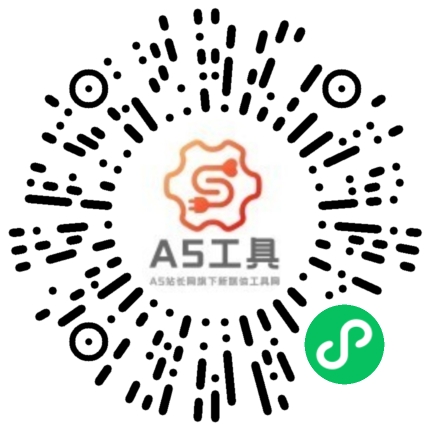克隆之声:音频个性化未来,福兮祸所依?
2025-06-27 18:02
**Cloning Your Voice: The Future of Audio Personalization**
Imagine a world where your voice could be cloned with stunning accuracy, capturing every nuance, inflection, and tone. Would you embrace this technological marvel, or would it strike you as a dystopian nightmare? The advent of voice cloning technology is upon us, reshaping the landscape of audio personalization in ways that were once the stuff of science fiction.
The concept of cloning a voice isn't just about creating a perfect replica for fun and games. It holds transformative potential across various industries, from entertainment to customer service. Picture this: your favorite movie star, deceased for years, narrating a new audiobook, their voice as vivid and authentic as if they were still alive. Or consider the customer service experience where a cloned voice of a beloved brand mascot interacts seamlessly with customers, providing personalized assistance without the need for human intervention.
But how does this technology work, and more importantly, is it ready for prime time? Voice cloning involves sophisticated algorithms that analyze vast amounts of audio data to capture unique vocal characteristics. According to recent research, advancements in deep learning and neural networks have significantly improved the fidelity of cloned voices. Studies show that with just a few minutes of audio, these systems can generate highly realistic imitations, often indistinguishable from the original.
One might wonder about the ethical implications of such technology. After all, voice is deeply personal, often tied to our identity and emotional well-being. The misuse of cloned voices could lead to impersonation scams, deepfake audio manipulations, or even violations of privacy. Yet, advocates argue that with proper regulations and ethical guidelines, voice cloning can be harnessed for good, enhancing accessibility, creativity, and efficiency.
Consider the benefits for people with speech impairments. A cloned voice could serve as a bridge, allowing them to communicate with their natural voice, albeit synthesized, preserving their identity and dignity. In the realm of entertainment, voice actors could record once and have their voices cloned for multiple roles, reducing workload and expanding creative possibilities.
Moreover, the market for voice-based technologies is booming. Statistics indicate that the global market for voice recognition and biometric solutions is projected to reach billions by the end of the decade. With voice cloning as a key component, this market is poised for exponential growth, driving innovation and adoption across sectors.
As we stand on the cusp of this vocal revolution, the question isn't if voice cloning will become mainstream but how we will navigate its implications. Will we create a world where cloned voices augment human capabilities, fostering connection and creativity? Or will we fall prey to its darker potential, where authenticity is compromised, and trust eroded?
The future of audio personalization is in our hands, shaped by our choices and values. As we clone our voices, let us also clone a sense of responsibility, ensuring that this technology serves to amplify our humanity, not diminish it.
Imagine a world where your voice could be cloned with stunning accuracy, capturing every nuance, inflection, and tone. Would you embrace this technological marvel, or would it strike you as a dystopian nightmare? The advent of voice cloning technology is upon us, reshaping the landscape of audio personalization in ways that were once the stuff of science fiction.
The concept of cloning a voice isn't just about creating a perfect replica for fun and games. It holds transformative potential across various industries, from entertainment to customer service. Picture this: your favorite movie star, deceased for years, narrating a new audiobook, their voice as vivid and authentic as if they were still alive. Or consider the customer service experience where a cloned voice of a beloved brand mascot interacts seamlessly with customers, providing personalized assistance without the need for human intervention.
But how does this technology work, and more importantly, is it ready for prime time? Voice cloning involves sophisticated algorithms that analyze vast amounts of audio data to capture unique vocal characteristics. According to recent research, advancements in deep learning and neural networks have significantly improved the fidelity of cloned voices. Studies show that with just a few minutes of audio, these systems can generate highly realistic imitations, often indistinguishable from the original.
One might wonder about the ethical implications of such technology. After all, voice is deeply personal, often tied to our identity and emotional well-being. The misuse of cloned voices could lead to impersonation scams, deepfake audio manipulations, or even violations of privacy. Yet, advocates argue that with proper regulations and ethical guidelines, voice cloning can be harnessed for good, enhancing accessibility, creativity, and efficiency.
Consider the benefits for people with speech impairments. A cloned voice could serve as a bridge, allowing them to communicate with their natural voice, albeit synthesized, preserving their identity and dignity. In the realm of entertainment, voice actors could record once and have their voices cloned for multiple roles, reducing workload and expanding creative possibilities.
Moreover, the market for voice-based technologies is booming. Statistics indicate that the global market for voice recognition and biometric solutions is projected to reach billions by the end of the decade. With voice cloning as a key component, this market is poised for exponential growth, driving innovation and adoption across sectors.
As we stand on the cusp of this vocal revolution, the question isn't if voice cloning will become mainstream but how we will navigate its implications. Will we create a world where cloned voices augment human capabilities, fostering connection and creativity? Or will we fall prey to its darker potential, where authenticity is compromised, and trust eroded?
The future of audio personalization is in our hands, shaped by our choices and values. As we clone our voices, let us also clone a sense of responsibility, ensuring that this technology serves to amplify our humanity, not diminish it.
这篇关于《克隆之声:音频个性化未来,福兮祸所依?》的文章就介绍到这了,更多新媒体运营相关内容请浏览A5工具以前的文章或继续浏览下面的相关文章,望大家以后多多支持A5工具 - 全媒体工具网!
相关资讯
查看更多
克隆声音技术:重塑娱乐教育,开启声音新纪元,你准备好了吗?
**克隆声音:开启声音技术的新纪元,你能想到哪些应用?**
在科技日新月异的今天,克隆声音这一技术正逐渐从科幻电影走进现实生活。想象一下,如果我们能够克隆出任何人的声音,这将会为我们的生活带来哪些前...

克隆人声软件:解锁声音新纪元,让你的声音无处不在!
**克隆人声音的软件:探索声音世界的无限可能**
在科技日新月异的今天,克隆人声音的软件正逐渐从科幻电影走进我们的日常生活。你是否曾想过,只需几秒钟的录音,就能拥有与偶像、名人甚至自己一模一样的声音...

声音克隆软件失灵之谜:技术、数据双挑战,何时能破局?
**声音复制克隆软件为何失灵?探索背后的谜团**
在科技日新月异的今天,声音复制克隆软件本应如科幻电影中的场景一般,让我们轻松拥有属于自己的“声音分身”。然而,不少用户却发现,这些看似神奇的软件在实...





